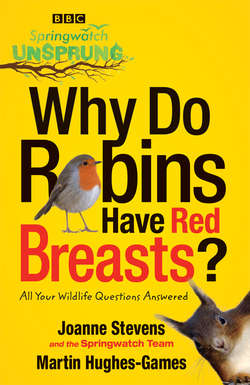Читать книгу Springwatch Unsprung: Why Do Robins Have Red Breasts? - Jo Stevens - Страница 13
Tough Love
ОглавлениеWhile I was walking my dog round the pond near my house the other day, I noticed a moorhen with three chicks on the water. As I watched them the adult moorhen began to peck the chicks and make them go under the water. I was just wondering if it was teaching them to dive or if it was trying to kill them? Charlotte
Moorhens are notoriously violent parents, often ‘tousling’ their chicks, pecking at them or holding them underwater. It can look quite brutal and it’s probably not a pleasant experience for the chick! Why would a parent be so aggressive towards its own offspring? It seems to be a case of tough love to deal with sibling rivalry.
Moorhens often have large broods of eight or more eggs. They hatch over several days so the ones that hatch first are larger and have an advantage in securing their parents’ care over the smaller ones. Moorhens are ‘nidifugous’; that is, they leave the nest soon after hatching but the chicks are still partly reliant on their parents for food. Most waterfowl, such as mallards, will simply lead their chicks to food and let them get on with it, but moorhens take great care in feeding their young. However, there is intense competition between the chicks for their parents’ attention and the adults are constantly pestered for food.
Adults are more aggressive towards larger chicks that may outcompete their smaller siblings and monopolise feeds. Unsurprisingly, after being attacked a chick stays out of its parents’ way and stops begging to be fed for a while. This allows the smaller chicks a chance to receive their fair share of food. So the parent may be trying to ensure all chicks are fed equally and also force the bigger chicks to fend for themselves, encouraging them to become independent.
Despite the squabbles, moorhens have very attentive families. Moorhens and long-tailed tits are the only British birds to breed cooperatively; that is, youngsters from the first brood sometimes stick around to help raise the second brood. This gives the juveniles valuable experience in bringing up chicks and helps their siblings to survive. As is so often the case in human families, the older moorhen brothers and sisters support their frazzled parents to keep the peace.
